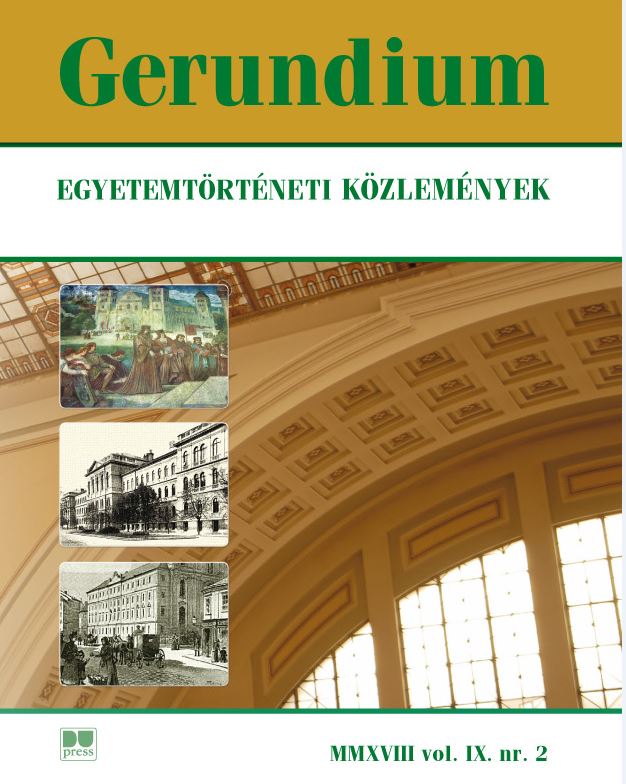Szakszerűség, tudományosság, kritikusság – a politikai aktivitás kezdetei az egyetemi ifjúság körében kétszáz éve
Author
View
How To Cite
Abstract
Comp etence, Erudition and Critical Thinking. The Beginnings of Political Act ivity among University Students in the Early 19th Century. The first decade of the 19th century was a period of significant change in terms of the political activity of European university students. They had come forward before in hope of achieving interest- or value-based goals, and in such cases, they exhibited a considerable ability to promote their own interests. However, their involvement and political role was entirely different in the Middle Ages and Early Modern Times. From the 1810s on, the opinion and activity of university student as political actors independent from both the university and the professors were taken into account – and often even feared – by the political elite in power. The transformation of university students’ political role was the result of several, almost simultaneous changes accumulating. Due to the branching off of professional degrees and the increasing expertise of their scientific base, expectations of civic engagement based on critical thinking, and a new kind of uncertainty deriving from various sources made university students especially responsive to problems of their times. Several factors played a vital role in this growing responsiveness: the (cameralist) teachings of the Enlightenment; the strengthening of academies of science, which were the primary competitors of universities; as well as a concomitant separation of disciplines and the disappearance of the shared theological-philosophical-philological language used before. These factors were intensified by career starter graduates’ recurring fears of unemployment – triggered by processes of professionalization – which further increased university students’ interest in public affairs and their political activity.


 https://doi.org/10.29116/gerundium/2018/2/3
https://doi.org/10.29116/gerundium/2018/2/3





